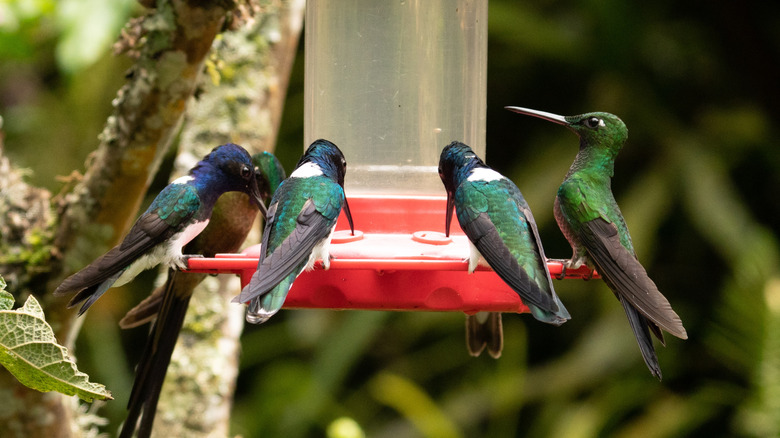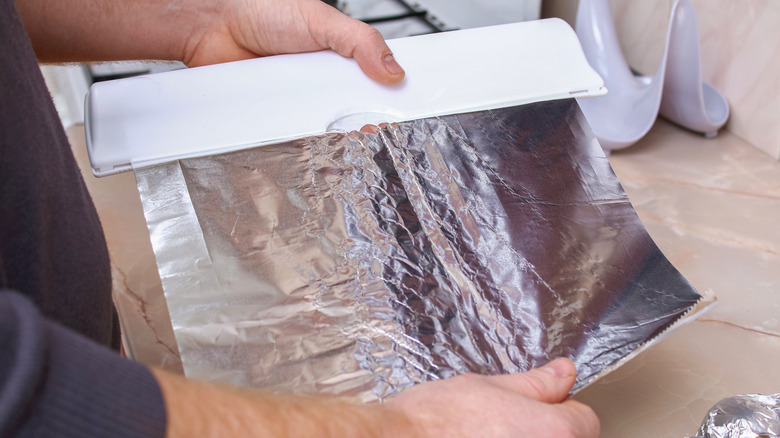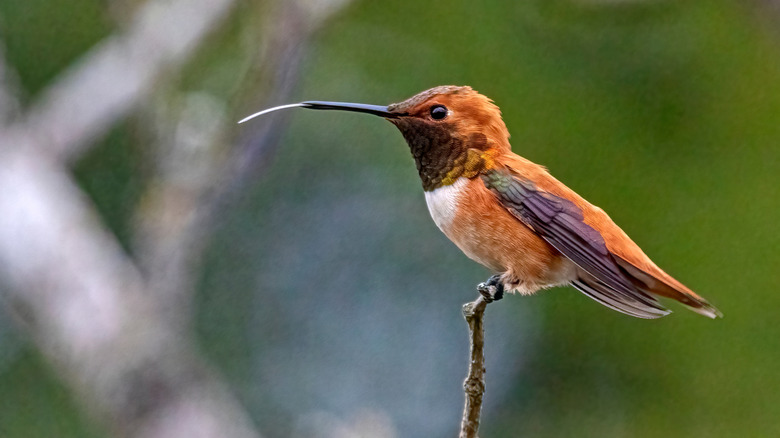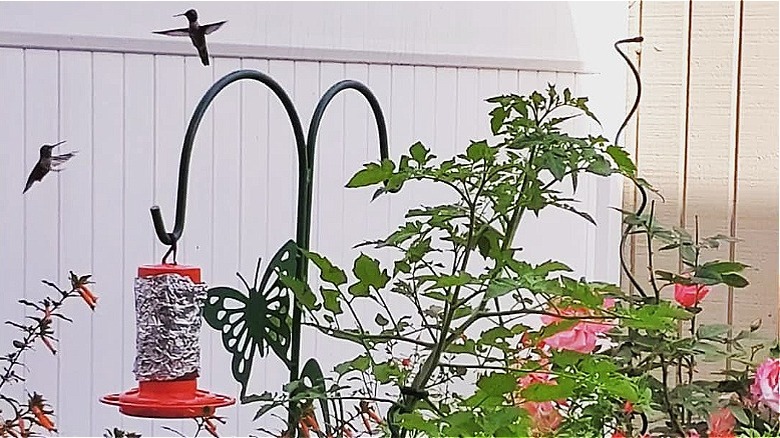Why People Wrap Aluminum Foil Around Hummingbird Feeders (& Should You?)
If you've seen a neighbor with aluminum foil covering their hummingbird feeder, they're likely trying to keep their nectar safe for longer. It's important to change hummingbird feeder nectar daily in the summer, as rising temperatures could cause the sugary water to spoil. Once outdoor temperatures reach 90 degrees Fahrenheit or higher, your nectar can ferment or even begin to harbor bacteria and mold. Additionally, extremely hot nectar could potentially hurt the birds. Some people choose to wrap their feeders in aluminum foil to try to keep the nectar just a bit cooler. The idea behind this hack is that aluminum foil will reflect heat and light away from the feeder, keeping the nectar inside at a lower temperature.
While there's no guarantee that aluminum foil will for sure prevent your hummingbird nectar from spoiling, it should help to keep some of the heat out. Aluminum foil doesn't absorb or hold onto heat, which is often why it's used in DIY insulation solutions. This means it could also be a good way to prevent your hummingbird feeder from getting too hot in the summer. You might also consider implementing additional methods for keeping your nectar from holding too much heat if the weather gets brutal.
How aluminum foil keeps hummingbird nectar cool
The aluminum foil hack may seem like another internet myth, but it is true that the foil is capable of reflecting both heat and light. The shiny surface causes light and heat to bounce off it, which allows it to keep objects in the hot summer sun cooler, such as roofs. This metal's ability to keep heat out is one reason you'll want to cover your windows in aluminum foil and why it is used as an insulator.
A bonus of using aluminum foil is its ability to deter bees and squirrels from your hummingbird feeder. The reflection of the foil is known to scare the bees away. Squirrels also hate the shiny, crinkly material and will avoid it when possible. It may not stave off the more determined critters, but it certainly won't hurt to make them think twice about coming close.
Spoiled nectar isn't safe for hummingbirds
Though aluminum foil can keep the nectar temperature lower, your feeder may still get too warm in extreme summer weather. When hot nectar spoils, it can be extremely dangerous for hummingbirds. The dirty sugar water can lead to candidiasis, a fungal infection that causes their tongues to swell, making it unable to contract back into their mouths and difficult to impossible for them to eat. Left untreated, it is typically lethal. If you spot a hummingbird that seems lethargic or has its tongue sticking out, contact your local wildlife rehabilitation center. It should be able to administer an antifungal medicine to clear up the infection and get your feathered friend back on its feet.
The best treatment for infection is prevention. While aluminum foil can reflect heat, it's still crucial to replace your hummingbird nectar, clean your feeders regularly, and monitor it for signs of spoilage. Ignoring sugar water that starts to get cloudy is one of the mistakes to avoid when making hummingbird nectar. The cloudiness is an indication of mold, yeast, or bacterial growth.
While not a replacement for keeping the nectar clean, the aluminum foil hack regulates the high temperatures these microorganisms thrive in. This hack helps to keep the nectar cooler for longer, but eventually the outdoor heat will warm it. This is a method you should try if you're constantly battling to keep your hummingbird nectar fresh and safe in the summer.
How to use aluminum foil on your hummingbird feeder
If you'd like to try insulating your hummingbird feeder with aluminum foil, it's a rather simple solution to implement. Tear a piece of foil from the roll and wrap it around the tube of your feeder where nectar is stored. You can also crumple the aluminum to leave more air in between the barrier and the hot sun, which might help to make your insulation a bit more effective.
Additionally, you may try relocating your hummingbird feeder to a shadier spot where temperatures will naturally be lower, though some hummingbirds are picky about their feeder staying in the same location. Switching to a glass feeder, rather than a plastic one, may also help to prevent the temperature of the nectar from rising as quickly. And, adding ice to the nectar can give it a quick cool-down. No matter what, it's crucial to change out your sugar water frequently, especially when the weather is brutally hot, and to safely clean your hummingbird feeders. Try only putting out a small amount of nectar at a time to ensure that it doesn't spoil.



